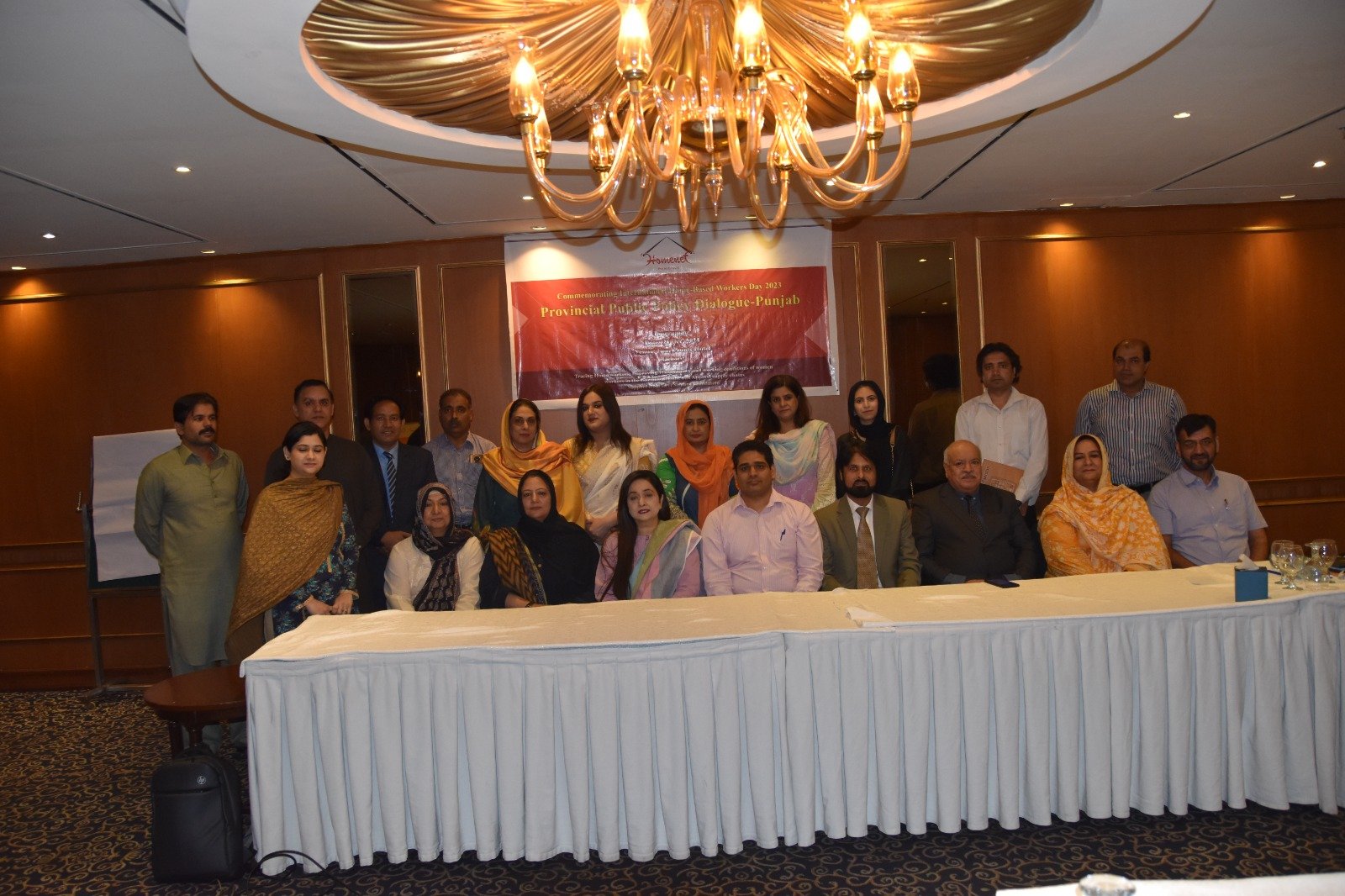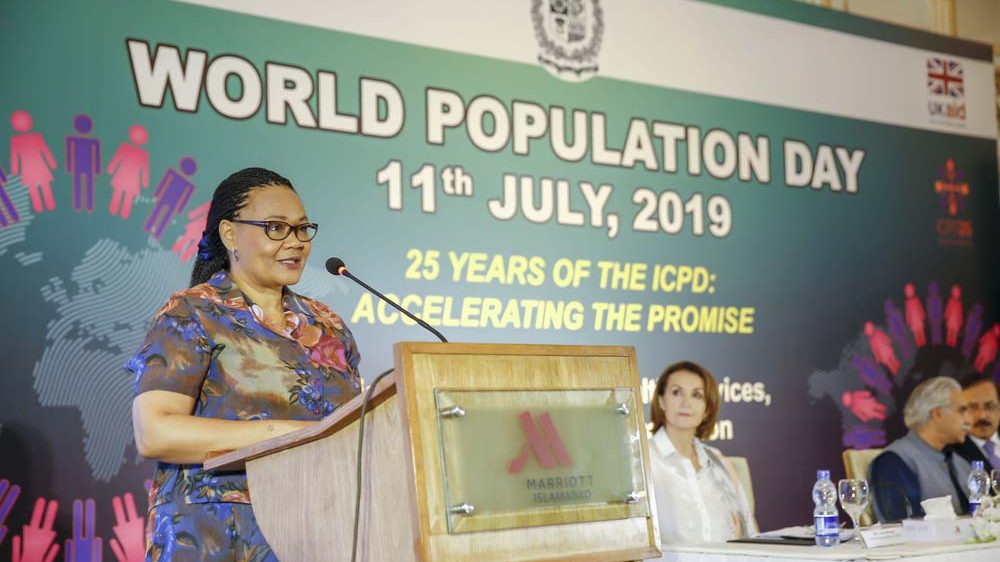Lahore 27 Oct 2023: With the Home base workers legislation enactment and inclusion of
HBWs in the Labour workforce Pakistan leads the way in South Asia in legislation for
homeworkers. The promising policy environment has the potential to put Pakistan in a strong
position as trade with the EU – and other OECD countries – increasingly becomes subject to
business and human rights compliance standards. This was shared by Ume Laila, Executive
Director, Home Net Pakistan in a policy dialogue held today in Lahore. The dialogue aimed at
discussing the major challenges in mainstreaming the home base workers from the informal
economy in the major labour dialogue. There are initiatives taken by the GoP for recognition
of the HBWs as a work category. However there are still major hurdles in the
implementation of the Punjab HBWs Act 2023. Amidst the changing and challenging
scenario of politics, labour situation, global markets; women in informality belonging to
home base sector remain vulnerable with uncertainty and lack of clarity of the their roles and
position within the existing labour market. Though not yet at implementation stage, the
Homebased Workers Act 2018 of Sindh province, Punjab (2023), Baluchistan (2022) and
Khyber Pakhutwah (2021), provide crucial frameworks within which homebased workers are
in line to be recognized and access fairer treatment under law stressed Ume Laila.
Ume Laila said that HomeNet Pakistan under the initiative of “Tracing Home workers,
Improving Transparency and working conditions of women workers in the Garment Textile
and Apparel supply chains”; intends to follow up on the dialogue for creating spaces for the
women in the garment and textile as informal workers. Through larger sensitization and
capacity building of the home workers and the relevant stakeholders around presence of
home workers within supply chains and initiate dialogue between relevant stakeholders. It is
envisioned that the dialogue would provide a platform to ensure collective actions to
further ensure inclusion and protection of Home workers across supply chain.
Rao Zahid, Deputy Secretary LHRD shared the main clauses of the HBWs Act, the fifth
approved law off the year 2023. He shared the definitions in the law e.g HomeBased
Worker, contractor,
Wages, Worker Establishment of welfare Fund with the seed money by GoP. Which will utilize
for the cash benefit of HBWs and their skill development.
M. Ikram from Employers Federation of Pakistan said that Given this, it is now even more
important that EU-based brands operating in Pakistan take steps to gain better visibility on their
supply chains and understand impacts they are having, as buyers, on their suppliers’ capacity to
support the most vulnerable workers. Hiddenness itself drives vulnerability as brands are often
not aware of these workers vital contribution to production processes and not able to include
them as part of regular audits. At the same time, it is well known that buyers’ requirements often
mean that a flexible workforce – including homeworkers and other outworkers – needs to be
maintained by suppliers. Transparency hinges on having open conversations about this issue.
Prof. Dr. Mehnaz Hassan, Chairperson Social Work Department, University of Punjab, We always
talk about the agenda of women violence but not discuss the positive visible work by the invisible
worker that is women. We have to address the agenda of Social Risk Management with regards
to women. She also emphasized on the mapping of Sanatzar, TEVTA and PVTC.
Dr. Uzma Khan, Department Women Studies, Lahore College University. Mental Wellbeing may
also be address in the indicator.
Mr. Shahid, Secretary Minimum Wage appreciated HomeNet and especially Ms. Ume Laila for
their contribution in approval of Law. He also said that as per law it will be mandatory for an
employer to provide signed contract with HBWs. The sample of contract also added as a
appendices of Law.
Mr. Sajjid Rasool, DG, Bureau of Statistics appreciated HomeNet Pakistan for taking the initiative
as Pioneer for this policy Dialogue which Should be done by the Government of Punjab’s relevant
Department.
The policy Dialogue was attended by Government of Punjab officials including Minimum Wage
and Labour Departments, national and International NGOs, Academia. The Provincial Task force
formation was recommended for policy implementation for HBWs, and Time
Based Survey for minorities and Trans Gender for addressing the missing component of HBWs
survey, Gender disparity Survey must be done after every third Year.
The policy dialogue sessions will also be held in Lahore and Karachi to further ensure the inclusion
and transparency within the supply chains.
















